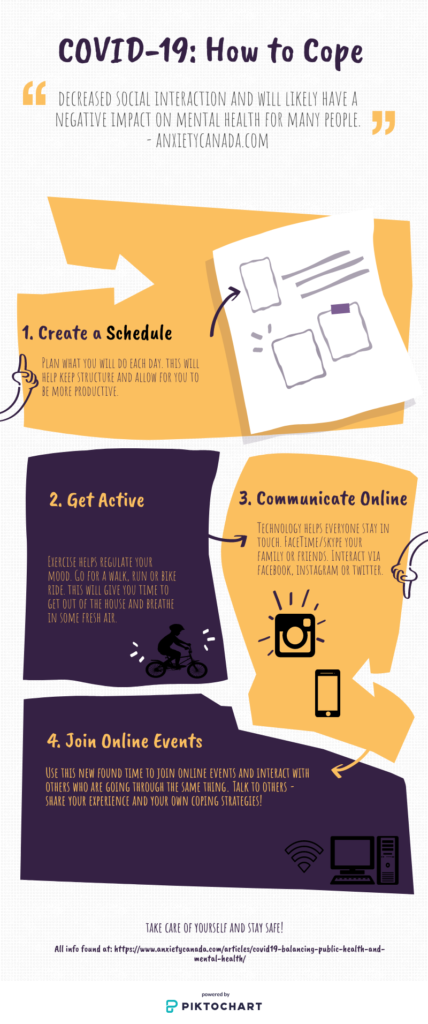By Ruby Asgedome
A series of hellos ring through the Sunday evening Zoom call as participants greet the familiar and unfamiliar faces who have joined the online event.As new faces appear in the call, the frame sizes shrink within the grid view. Those who join are mostly seniors and it’s clear that they aren’t used to this type of technology.
This online form of communication is new for many and for most of those who join, this is the second time they are seeing one another via video chat today, following their morning service. About half of those who join are elderly couples whose eyes are glued to the screen as if they are watching their favourite show. This is nothing like their usual Sunday night that they spend together in the gym of the Lawrence Park Community Church.
Host Rev. Stephen Milton adjusts his black glasses while he dabbles in some light conversation. All the microphones are muted before he kindly welcomes everyone, both new and returning. As he introduces the topic of the night, the adults who are part of the church’s congregation flood the group chat, urging those who have black screens to turn their cameras on.“Tonight, on Soul Table, we will be shown how to exercise our brains,” says Milton, with a warm smile on his face. Excitement dances across the faces of participants who have been deprived of the face-to-face opportunity to participate in an activity like this due to social distancing measures brought on by the COVID-19 pandemic.
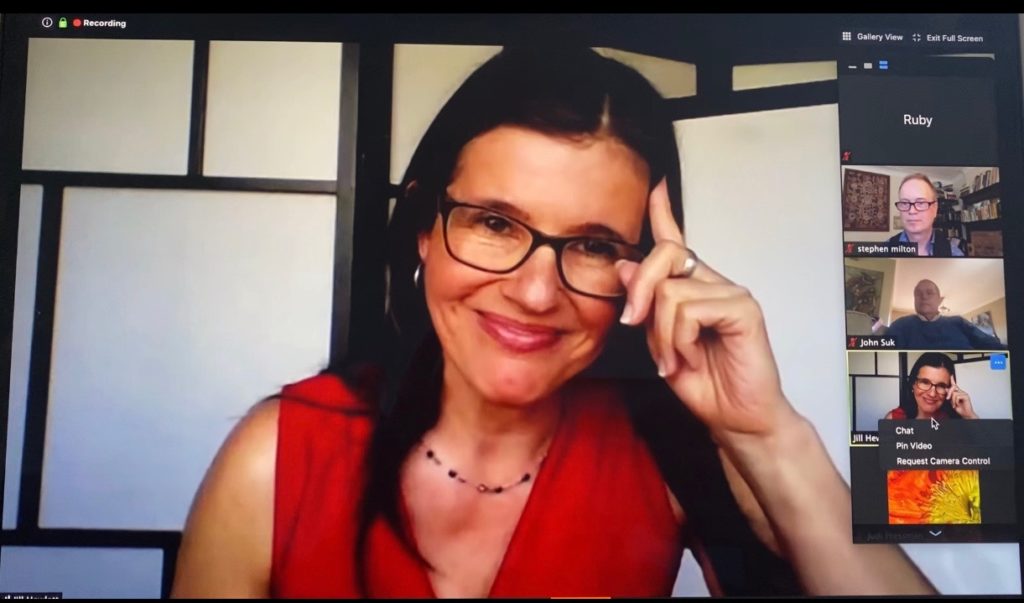
In June 2019, Milton was called to the Lawrence Park Community Church to run a new program known as Soul Table, which was set to start in September 2019.
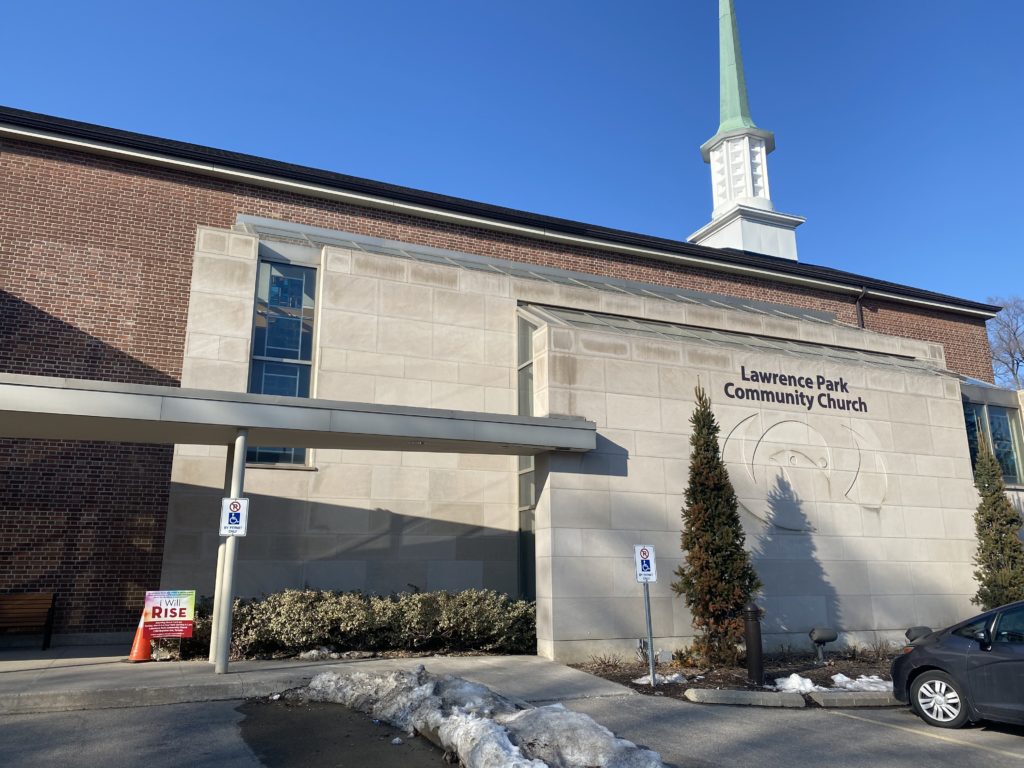
The program was created for people in this community. No matter their religious beliefs are or how strong they may be, this is meant to be a safe space for all to discuss important and sensitive social justice issues freely. Every week, a new speaker is invited to host. The topics discussed range from climate change to the American-Mexican border crisis.
The night begins with dinner and some light conversation, followed by the presentation of the speaker and then some discussion on the topic of the night. For seven months, this was the way the church hosted Soul Table every Sunday at 6 p.m.
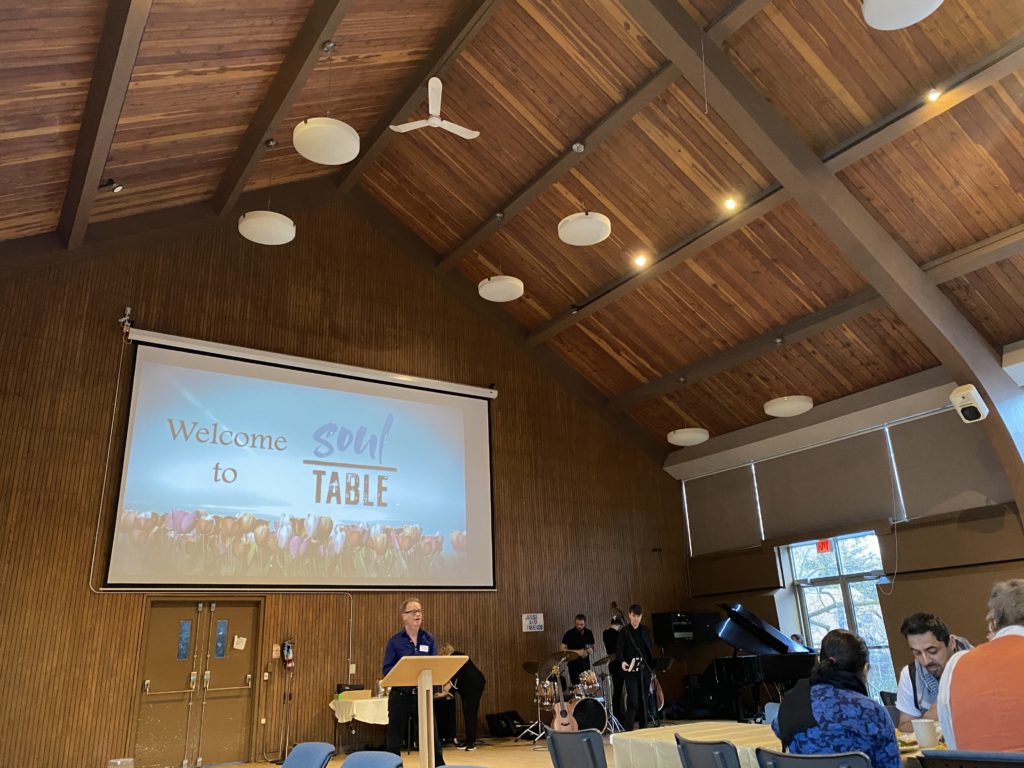
Rev. Stephen Milton introducing the guest speakers for that week’s Soul Table event while the band prepares their opening song. Taken on Feb. 23, 2020. (Ruby Asgedome/T•) 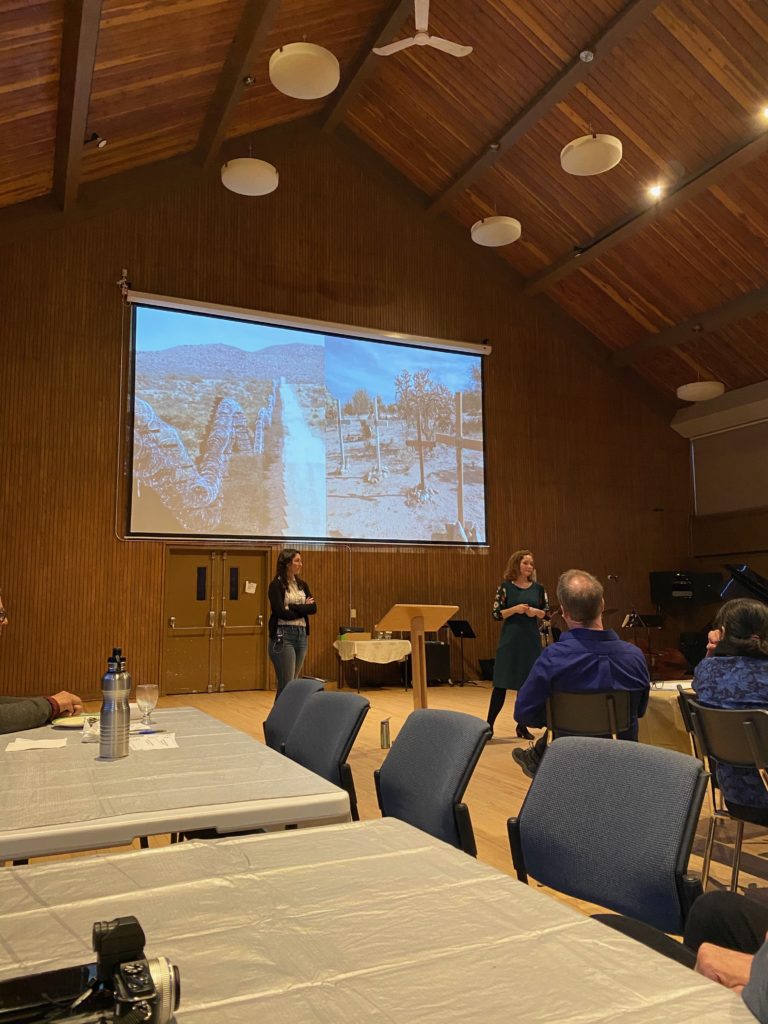
Rev. Alexa Gilmour (right) and Jenn McIntyre of Romero House (left) discussing the American-Mexican border crisis at a February Soul Table event. Taken on Feb. 23, 2020. (Ruby Asgedome/T•)
COVID-19, is a disease that arrives with the common symptoms of the flu and causes respiratory illness. The virus has been declared a pandemic and Canadians have been told to practise social distancing, which means limiting their interaction with those who are not immediate family members and the community.
The spread of the disease has led to the closing of churches, schools, community centres, restaurants, stores deemed non-essential and various other public spaces. This measure is aimed at keeping hospitals from being overwhelmed and protecting those more at risk: people with health issues and senior citizens. But this nightmare has left many people trapped inside their homes with little to no social interaction.
The social distancing measures have not only been implemented in Canada, but also worldwide. This has resulted in the online transition for many churches, mosques, temples and other places of worship. Top religious figures like Pope Francis at the Vatican, have also begun broadcasting mass and church events online.
Brain fitness expert Jill Hewlett was invited to host the first virtual Soul Table event. She supplied participants with the tools and methods to relax and de-stress.
“OK, everyone put your hands on your ears and rub from top to bottom, it’s OK to yawn, it’s not rude,” Hewlett insists as she smiles and demonstrates on the screen. Participants begin to mirror her actions and for 30 seconds, ear rubbing and yawning takes over all the screens in the call.“I wanted to make sure people were comfortable and could open and stretch their minds all while they’re at home,” Hewlett says following the event. The various exercises made it clear Hewlett had achieved her goal as smiles plastered the faces of all the jittery participants.
“Take deep breaths, in and out,” says Hewlett. Simply taking deep breaths can allow the body to feel more relaxed and comfortable which helps stimulate the brain, she explains. “Caring for your body helps you care for your brain.” Taking a couple minutes every day to stimulate your brain goes a long way, she adds.
Hewlett had originally planned to do the event in person at the church. “In February, the church contacted me to host a Soul Table event, all before COVID-19 blew up,” she remembers.
“Regardless, I’m really glad Zoom exists because it allows for us to come online and engage with each other and it lets events like Soul Table run, giving people a sense of community.”
Hewlett is hopeful that online events would encourage members of the church to continue engaging with one another, even if it’s through their computer screens. Christine Morrell felt this sense of community and belonging when she attended the online event.
Due to the social distancing measures put into place, Morrell’s workplace has closed, and they have transitioned online. With all her free time, she has joined some online groups and attended virtual events. Morrell is not a member of the church and doesn’t consider herself a very religious person. “I’m very spiritual so the ‘Soul Table’ name appealed to me,” says Morrell.
Although this was Morrell’s first Soul Table event, she was embraced with open arms. Immediately after joining the Zoom call, she was bombarded with greetings and welcoming smiles. “I thought it was so cool and the education component was so great,” says Morrell.
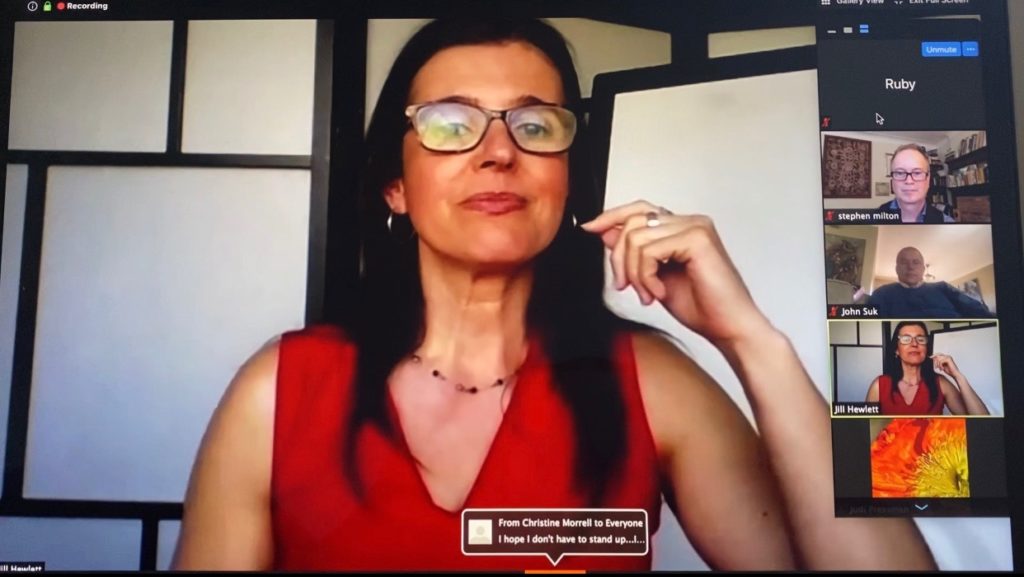
Morrell has been experiencing feelings of anxiety and stress while practising social distancing, but she says it helped to know that she wasn’t the only one who felt this way.
“It’s important to show solidarity with the community by suffering in the same way they are, this makes them feel connected,” says Milton. Everyone feels alone, but when they turn on their cameras and join the online church, they can see that everyone is in the same boat as them and this calms them down, he adds.
The church has successfully moved all events online. This is meant to ensure that they have something going on almost every day. “We completely redid the church’s website, it’s now a bulletin board of all the stuff that’s going on online,” says Milton. “We used to post our sermons online, two or three days after and now we’re posting them every day.”
On a Monday, the church hosted an online meditation class that has always been in person. “There were more than 25 people in the call, actively participating,” says Milton. “I remember a time when it would be only eight or nine senior citizens that would show up at the church for this on Mondays.”
The Lawrence Park Community Church continues to create a range of online content and invite new speakers for Soul Table events. Milton believes that this is where churches differ and play such a huge role in this pandemic. “While other organizations have stopped meeting with their people; churches have risen to the challenge and are trying to keep people connected.”
